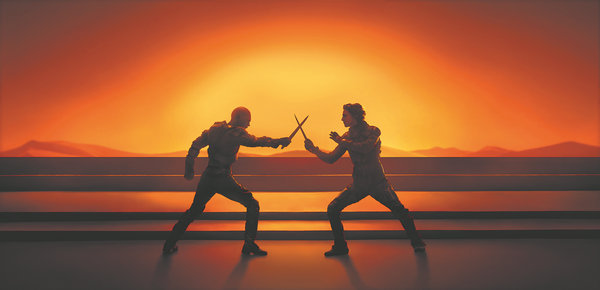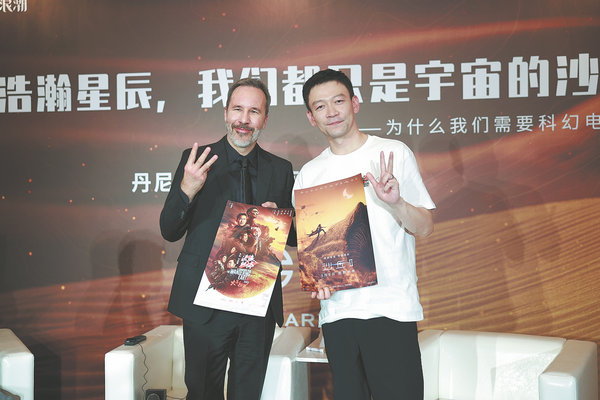Dune film maestro recalls China influence
After gap of more than three decades, highly successful director returns and talks of 'dream' to work in country, Xu Fan reports.
By Xu Fan | China Daily | Updated: 2024-03-26 07:38

When Denis Villeneuve, the French-Canadian director best known for his epic sci-fi franchise Dune, visited Beijing earlier this month, he reminisced about his first trip to the country in 1990.Villeneuve, then 22, spent around a month in Chengdu, Southwest China's Sichuan province, producing a small documentary. This experience offered him an immersive journey into Chinese culture, including tasting local delicacies such as spicy hotpot.
"I said to myself, 'I need to come back as soon as possible', and that was 34 years ago, which is very sad," the director recalls with a touch of nostalgia during a conversation with Guo Fan, director of The Wandering Earth, China's highest-grossing sci-fi franchise.

Villeneuve reveals that he has spoken with his wife, Tanya Lapointe — the producer of the Dune movies — about making a movie in China, which he believes is a means for him to realize the wish he made decades ago.
"I'm trying to make this happen. I don't know if it can be Part Three (of Dune), but if I could have the chance to spend time and work here (in China), it would really be a dream come true," he adds.
Having studied film at the University of Quebec in Montreal, Villeneuve also shares that one of his biggest cinematic revelations during his college years came from iconic Hong Kong director Wong Kar-wai. Wong's 1990s movies, ranging from Happy Together to Fallen Angels and Chungking Express, had a massive influence on Villeneuve aesthetically.
Chinese culture's impact on Villeneuve can also be seen in his earlier directorial efforts like the 2016 scifi movie Arrival, in which the writing of the alien language — reminiscent of ink paintings — is inspired by Asian calligraphy and relatable Chinese elements.
























